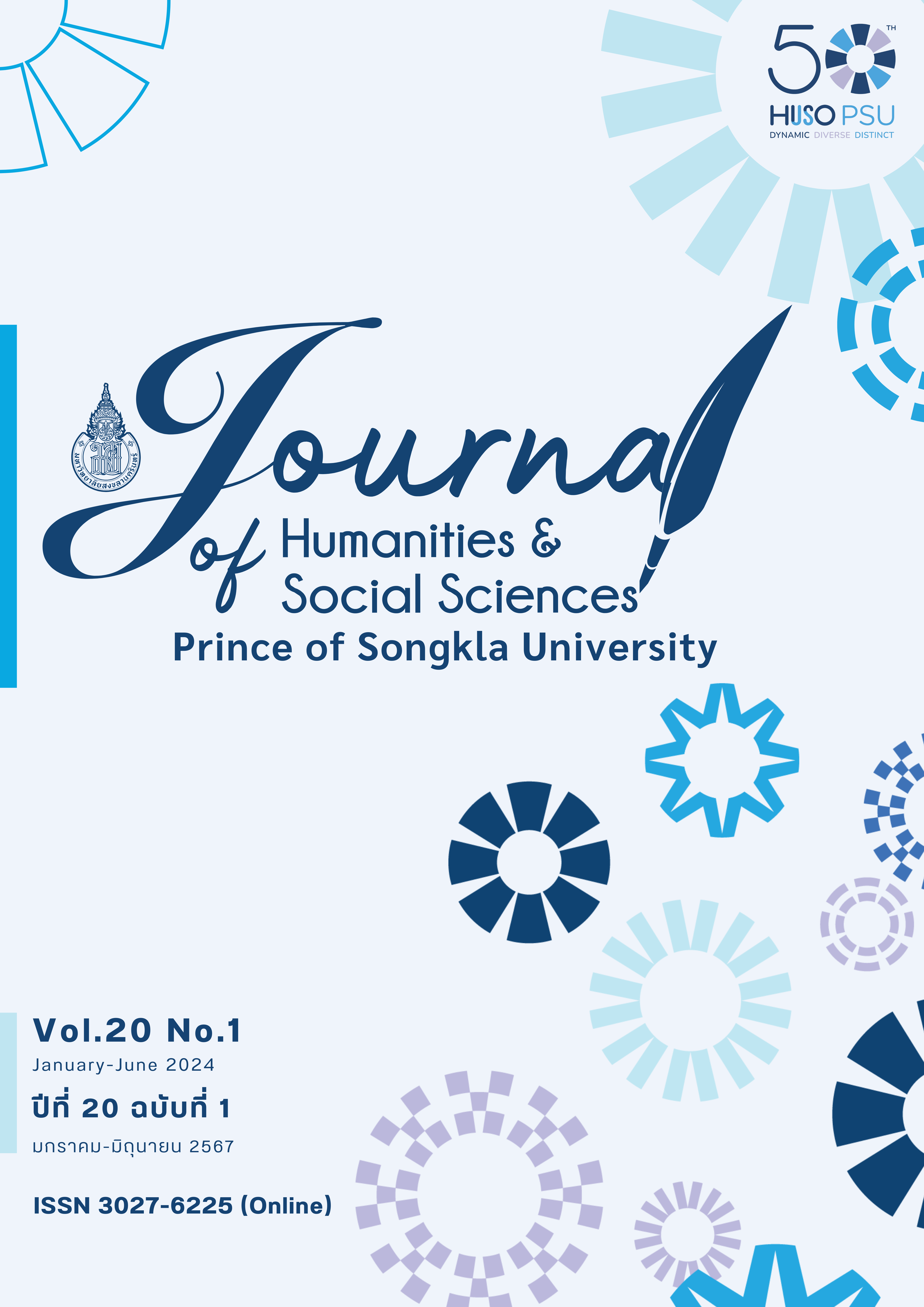SUPPORTING INTERACTIONAL PRAGMATICS STRATEGIES IN ENGLISH AS A LINGUA FRANCA CLASSROOM INTERACTION
Keywords:
Interactional Pragmatic Strategies, English as a lingua franca, EFL classroomsAbstract
The rise of English as a global language and its impact on applied linguistics has introduced intriguing and challenging perspectives on developing the practical skills of second language learners, especially in classrooms with diverse linguistic and cultural backgrounds. Proficiency in using English as a second language involves understanding the language itself and employing effective strategies to facilitate communication between speakers. Therefore, it is crucial to comprehend the appropriateness of these strategies and when and how learners should use them with different individuals. One aspect of communication involves strategic behavior, which becomes necessary when breakdowns in communication lead to misunderstandings or lack of understanding. Addressing such communication issues highlights the interconnectedness of various interactional pragmatic strategies (IPSs) that assist participants in achieving mutual comprehension. This academic paper explores the different IPSs to reshape the teaching and learning processes in classrooms where English is taught as a foreign language. Through a detailed analysis of IPSs, it has been revealed that certain strategies not only help overcome communication obstacles within classroom interactions but also provide insights into the cultural nuances of English usage and its users. Based on these observations, specific IPSs that should be promoted as essential strategies in English as a lingua franca classroom are discussed.
References
Björkman, B. (2011). Pragmatic strategies in English as an academic lingua franca: Ways of achieving communicative effectiveness? Journal of Pragmatics, 25(4), 950-964.
Boonsuk, Y., & Ambele, E. (2019). Refusal as a Social Speech Act among Thai EFL University Students. Arab World English Journal (AWEJ), 10(2), 213-224. DOI: https://dx.doi.org/10.24093/awej/vol10no2.17
Bremer, P. (1996). Discourse in Intercultural Encounters. Routledge.
Brown, P., & Levinson, S. (1987). Some Universals in Language Usage Politeness. Cambridge University Press.
Chiang, S. Y. (2009). Dealing with communication problems in the instructional interactions between international teaching assistants and American college students. Language and Education, 461–478.
Chiravate, B. (2019). An Interlanguage Study of Thai EFL Learners’ Apology. English Language Teaching, 12(5), 116-129.
Cogo, A. (2009). Accommodating difference in ELF conversation In Mauranen, A., & Ranta, E. (Eds.), English as a lingua franca: studies and findings. Cambridge Scholars Press. pp. 254-273.
Cogo, A. (2012). Intercultural pragmatics: Routledge handbook of pragmatics. Routledge.
Cogo, A. & Dewey, M. (2012). Analysing English as a Lingua Franca: a corpus-driven investigation. London: Continuum. 3(2), 181–209.
Coppock, L. (2005). Politeness strategies in conversation closings. Unpublished manuscript: Stanford University.
Cutting, J. & Fordyce, K. (2021). Pragmatics. Routledge.
Doehler, S. P., & Pochon-Berger, E. (2015). The development of L2 interactional competence: Evidence from turn-taking organization, sequence organization, repair organization, and preference organization. Usage-based perspectives on second language learning, 30, 233.
Firth, A., & Wagner, J. (1997). On discourse, communication, and (some) fundamental concepts in SLA research. The Modern Language Journal, 81, 237–259.
Hedge, T. (2000). Teaching and Learning in the Language Classroom. Oxford University Press.
House, J. (2003). The pragmatics of English as a lingua franca. In A. Trosborg (Ed.), Pragmatics across languages and cultures. Berlin, Mouton de Gruyter. pp.363–390.
Hynninen, N. (2011). The practice of ‘mediation’ in English as a lingua franca interaction. Journal of Pragmatics, 4(3), 965–977.
Inkaew, M. (2018). An Exploration of English as a Lingua Franca Communication: A Case Study of How English is Used as a Lingua Franca among Non-native Speakers for Mutual Understanding in an International Golf Tournament Operation in Thailand. REFLections, 25(2), 42–58.
Kanchina, Y., & Deepadung, S. (2019). Request Modifications Used by Chinese Learners and Native Speakers of Thai. Journal of the Southeast EFL Linguistics Society, JSEALS, 12(1), 83–112.
Kaur, J. (2010). Achieving mutual understanding in world Englishes. World Englishes, 29(2), 192–208.
Kecskes, I. (2014). Intercultural pragmatics and Practice. Oxford University Press.
Khamkhien, A. (2022). Speech acts or speech act sets of refusals: Some evidence from Thai L2 learners. Novitas-ROYAL (Research on Youth and Language), 16(1), 97–121.
Khanapornvorakarn, S., & Gadavanij, S. (2022). Intercultural Pragmatic Analysis of “Sorry” in Inflight Service Refusals by Flight Attendants: A Case Study of a Thai Airline. PASAA, 63(9), 148-177.
Li Wei, A. (2002). “What do you want me to say?” On the Conversation Analysis approach to bilingual interaction. Language in Society, 3(1),159–180.
Lloret, M. (2019). Task-based language teaching and L2 pragmatics. In The Routledge Handbook of Second Language Acquisition and Pragmatics. Routledge.
Maiz-Arevalo, C. (2017). “Small talk is not cheap”: Phatic computer-mediated communication in intercultural classes. Computer Assisted Language Learning, 3(10), 432–446.
Mauranen, A. (2012). Exploring ELF. Non-native speakers shape academic English. Cambridge University Press.
Meierkord, P., & Christiane, L. (2000). Interpreting successful lingua franca interaction: An analysis of nonnative-non-native small talk conversations in English. Cambridge University Press.
Metsa-Ketela, M. (2016). Pragmatic vagueness: Exploring general extenders in English as a lingua franca. Intercultural Pragmatics, 13(5), 325–351.
Muhammad, R. (2018). Discourse analysis: Analysing adjacency pairs of teacher and students. IDEAS: Journal on English Language Teaching and Learning, Linguistics and Literature, 5(2).
Taguchi, N., & Ishihara, N. (2018). The pragmatics of English as a lingua franca: Research and pedagogy in the era of globalization. Annual Review of Applied Linguistics, 38, 80-101.
Pan, Z. (2022). A Corpus-Based Study on Politeness Used by L1 Thai EFL Learners.
International Journal of Linguistics. 14(6), 28–47.
Pitzl, ML. (2015). Understanding and misunderstanding in the Common European Framework of Reference: What we can learn from research on BELF and Intercultural Communication. Journal of English as a Lingua Franca, 4(1), 91–124.
Poplack, S. (1980). Sometimes I will start a sentence in Spanish y termino en español: toward a typology of code-switching. Linguistics 18(7/8), 581–618.
Raisanen, T. (2012). Processes and practices of enregisterment of business English, participation and power in a multilingual workplace. Sociolinguistic Studies, 6(2).
Sato, T., Yujobo, Y. J., Okada, T., & Ogane, E. (2019). Communication strategies employed by low-proficiency users: Possibilities for ELF-informed pedagogy. Journal of English as a Lingua Franca, 8(1), 9-35.
Schegloff, E. (2000). When ‘others’ initiate repair. Applied Linguistics, 21(2), 205–243.
Schegloff, E. A., Jefferson, G., & Sacks, H. (1977). The preference for self-correction in the organization of repair in conversation. Language, 53(2), 361–382.
Sharifian, F. (2010). English as an International Language: An Overview. In: Sharifian, F. (ed.), English as an International Language: Perspectives and Pedagogical Issues. Multilingual Matters.
Srikrai, S. P. (2020). Pragmatic Strategies in English as a Lingua Franca Interactions in International Relations Services in a Thai University Context [Doctoral thesis, Suranaree University of Technology]. Suranaree University of Technology.
Stilwell Peccei, J. (1999). Pragmatics. Routledge.
Taguchi, N., & Ishihara, K. (2018). Interlanguage pragmatics. In Barron, A. & Grundy, G.
Taguchi, N., & Ishihara, N. (2018). The pragmatics of English as a lingua franca: Research and pedagogy in the era of globalization. Annual Review of Applied Linguistics, 38, 80-101.
Varonis, E., & Gass, S. (1985). Non-native conversations: a model for negotiations of meaning. Applied Linguistics, 6 (1), 71-90.
Walsh, S. (2011). Exploring Classroom Discourse Language in Action. Routledge.
Watterson, M. (2008). Repair of non-understanding in English in international communication. World Englishes, 27(3), 378–406.
Wong, J. (2000). Delayed next turn repair initiation in native/non-native speaker English conversation. Applied Linguistics, 21(2), 244–267.
Yueguo (Eds.), The Routledge Handbook of pragmatics. Routledge. pp.153–167.
Yule, G. (1996). Pragmatics. Oxford University.
Zhang, Y., Wang., F., Wannaruk, A., & Suranaree, J. Pragmatic Competence in Business Context: A Case Study of Thai EFL University Students. Soc. Sci. 13 (2),1-24. https://doi.org/10.55766/RQSP1038
Zhu, W. (2017). Perceptions of extended concurrent speech in Mandarin. (n.p)
Zhu, W., & Boxer, D. (2021). Turn-Taking and Disagreement: A Comparison of American English and Mandarin Chinese. Contrastive Pragmatic. pp. 227–257.
Downloads
Published
How to Cite
Issue
Section
License
Copyright (c) 2024 Journal of Humanities and Social Sciences Prince of Songkla University

This work is licensed under a Creative Commons Attribution-NonCommercial-NoDerivatives 4.0 International License.
บทความนี้ได้รับการตีพิมพ์เป็นของวารสารวิชาการคณะมนุษยศาสตร์และสังคมศาสตร์ คณะมนุษยศาสตร์และสังคมศาสตร์ มหาวิทยาลัยสงขลานครินทร์ วิทยาเขตปัตตานี






